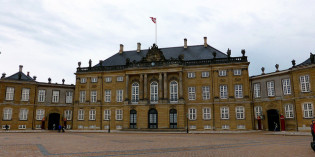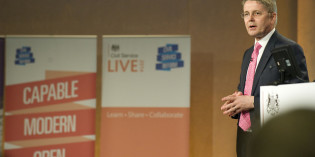Achieving accountable government

Anti-corruption accountability measures may actually erode citizens’ trust in political institutions, though they don’t have to
British politics was rocked in 2009 by the Parliamentary expenses scandal, which revealed the full extent of MPs claims, and provoked a near unprecedented media storm and damaged Parliament’s reputation significantly. Nan Zhang shares research from China, which shows that though anti-corruption measures can have both a positive and a negative impact on public perceptions […]

The purdah controversy – setting the rules of the referendum game
The Government’s defeat in the House of Commons shows that it most likely will have to accept the purdah restrictions that it previously rejected as unworkable. Here, Sara Hobolt explains what purdah is and why the issue has been so controversial. Similar PostsEnfranchising 16 and 17 year olds won’t create a new politics, but a more […]

Can constitutions improve democracy? Sometimes, but not always
Does adopting a constitution lead to better democracy? Not necessarily, write Todd A. Eisenstadt, A Carl LeVan, and Tofigh Maboudi, who studied 138 constitutions from a 37 year-period. They find that in many countries, the constitution-making processes did not incorporate broad public consultation, meaning that the drafters were often able to grab power by codifying benefits […]

Interview: Shauneen Furlong on Canada’s slide from digital government pre-eminence
Shauneen Furlong was one of the guiding lights of Canada’s transition from paper-based to online government. At the 2015 CeDem conference, she spoke to Democratic Audit’s Sean Kippin. In part two of this interview, she discusses how Canada incentivised its public servants and persuaded the public that digital was the future, and what lay behind their […]

Evidence from Belgium shows that gender quotas do not necessarily eliminate voter bias against women candidates
To what extent do electoral gender quotas change voters’ preference for male or female political candidates? Silvia Erzeel and Didier Caluwaerts examine the electoral evidence from Belgium, a country that has progressively adopted gender quota laws since the mid-1990s. They show that although the largest group of Belgian voters now vote for both male and […]

Hungary’s ‘Milla’ movement shows that social media driven protest movements only succeed when they connect meaningfully with civil society
The Hungarian Government, led by the Prime Minister Vicktor Orban has made waves for its authoritarian tendencies and stated ambition to create an ‘illiberal’ democracy. In response to the government’s censorship of the press, a protest group named Milla emerged, which had some success in organising campaigns against the government’s more nefarious tendencies. However, in […]

The Constitutional Standards of the House of Lords’ Constitution Committee: A valuable tool for enhancing scrutiny
To mark the launch of the second edition of The Constitutional Standards of the House of Lords Constitution Committee, Jack Simson Caird considers the role that a set of constitutional standards could play in the current government. Drawing on the example of English votes for English laws, he argues that such a code would increase […]

Interview: Shauneen Furlong on the challenges inherent in making the transition to digital government
Shauneen Furlong was one of the guiding lights of Canada’s transition from paper-based to online government. At the 2015 CeDem conference, she spoke to Democratic Audit’s Sean Kippin. In part one of this two part interview, she discussed the rationale behind the change, and the challenges she faced along the way. Similar PostsInterview: Shauneen Furlong […]

The requirement for civil servants to “promote” government policy has inevitably led to the perception of partisanship
The civil service is meant to be independent, serving the government of the day as it would a government of any other political persuasion. However, according to Dennis Grube, events since the publication of the 1968 Fulton Committee report (which recommended a more public role for civil servants) show the difficulties in reconciling independence and neutrality with […]

What to do about Calais… in 50 words
How should academics in the field of migration studies respond to the crisis in Calais? Bridget Anderson writes that viewing the crisis as a ‘migration problem’ misses the full picture: namely that those stuck in Calais are a symptom of a wider problem encompassing wars on the edges of Europe, an unequal economic system and the […]


 Democratic Audit's core funding is provided by the Joseph Rowntree Charitable Trust. Additional funding is provided by the London School of Economics.
Democratic Audit's core funding is provided by the Joseph Rowntree Charitable Trust. Additional funding is provided by the London School of Economics.